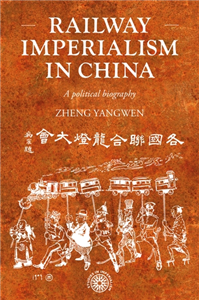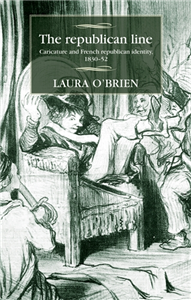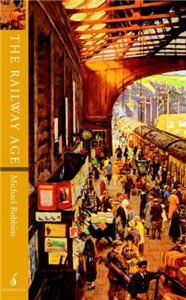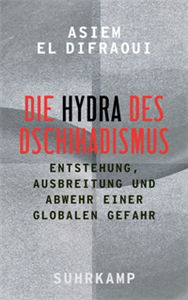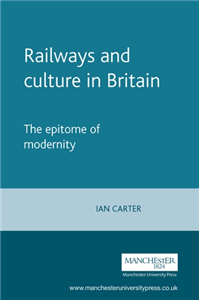Your Search Results
-
Promoted Content
-
Promoted ContentMarch 2026
Railway imperialism in China
A political biography
by Yangwen Zheng
Railway Imperialism in China: a Political Biography is the first and most comprehensive book on history and politics of all major railways in China from the late Qing to the post-Mao era. It investigates the transformation of railways from a bête noire within discussions about reform to the emblematic "engines for empire" as foreign powers used it to carve outspheres of control and exploit the late Qing, and as an instrument of nation making for Chinese regimes. The book introduces new archival sources and a wide range of secondary materials. Boldly conceived, it situates the making of modern China in the context of British, Russian, German, Japanese, American expansion. It traces China's transformation from a victim of railway imperialism in the Age of Empireto a railway expansionist in the twenty-first century.
-
 Trusted Partner
Literature & Literary StudiesJanuary 2013
Trusted Partner
Literature & Literary StudiesJanuary 2013The world of El Cid
Chronicles of the Spanish Reconquest
by Simon Barton, Richard Fletcher
Makes available, for the first time in English translation, four of the principal narrative sources for the history of the Spanish kingdom of León-Castile during the eleventh and twelfth centuries. Three chronicles focus primarily upon the activities of the kings of León-Castile as leaders of the Reconquest of Spain from the forces of Islam, and especially upon Fernando I (1037-65), his son Alfonso VI (1065-1109) and the latter's grandson Alfonso VII (1126-57). The fourth chronicle is a biography of the hero Rodrigo Díaz, better remembered as El Cid, and is the main source of information about his extraordinary career as a mercenary soldier who fought for Christian and Muslim alike. Covers the fascinating interaction of the Muslim and Christian worlds, each at the height of their power. Each text is prefaced by its own introduction and accompanied by explanatory notes.
-
 Trusted Partner
Humanities & Social SciencesJuly 2015
Trusted Partner
Humanities & Social SciencesJuly 2015The republican line
Caricature and French republican identity, 1830–52
by Laura O'Brien, Maire Cross, David Hopkin
The years between 1830 and 1852 were turbulent ones in French politics - but were also a golden age for French political caricature. Caricature was wielded as a political weapon, so much so that in 1835 the French politician Adolphe Thiers claimed that 'nothing was more dangerous' than graphic satire. This book is the first full study of French political caricature during the critical years of the July Monarchy (1830-48) and the Second Republic (1848-52). Focusing on the crucial question of republicanism, it shows how caricature was used - by both republicans and anti-republicans - to discuss, define and articulate notions of republican identity during this highly significant period in modern French and European history. ;
-
 Trusted Partner
Humanities & Social SciencesJune 1998
Trusted Partner
Humanities & Social SciencesJune 1998The railway age
by Michael Robbins
Covers the history and development of the railways and the transforming effect which they had on the world. A lively and readable account, peppered with fascinating facts. Written by an authoritative and important figure in the world of railways. ;
-
 Trusted Partner
Trusted Partner
-
 Trusted Partner
Children's & YA
Trusted Partner
Children's & YAThe Little Christmas Engine
by Anna Ruhe/Igor Lange
It’s winter in the pleasure park. The Little Engine is dreaming of Christmas, as he does every year. It would be so nice to see a real Christmas for himself. Suddenly something terrible happens up in the sky: Father Christmas comes crashing down to earth with his overloaded sleigh. Fortunately, no one is hurt, but the sleigh is broken. This is the Little Engine’s chance. He makes Father Christmas a great offer – and so he saves this year’s Christmas.
-
 Trusted Partner
The ArtsJuly 2023
Trusted Partner
The ArtsJuly 2023You’re nicked
Investigating British television police series
by Ben Lamb
You're nicked is the first comprehensive study of television police series in the UK. It reveals how British television's most popular genre has developed stylistically, politically and philosophically from 1955 to the present. Each chapter focuses on a particular decade, investigating how the most-watched series represent the inner workings of the police station, the civilian life of criminals and the private lives of police officers. This new approach unearths the complex ideology underpinning each series and discerns the key insights the genre can provide into the breakdown of the post-war settlement. Offering insightful readings of police series from Dixon of Dock Green to Happy Valley via The Sweeney, The Bill and Cracker, the book is a must-read for crime-drama enthusiasts worldwide. This new paperback edition features an extensive epilogue on Line of Duty and other Jed Mercurio creations.
-
 Trusted Partner
November 2021
Trusted Partner
November 2021Die Hydra des Dschihadismus
Entstehung, Ausbreitung und Abwehr einer globalen Gefahr
by Asiem El Difraoui
Nachdem der »IS« in Trümmern lag und »Kalif« al-Baghdadi im Oktober 2019 von US-Truppen getötet wurde, schien der »Krieg gegen den Terror« einmal mehr beendet. Aber der Dschihadismus ist längst eine globale Bewegung geworden, der Dutzende von Organisationen angehören – und mit Gewalt allein ist ihr nicht beizukommen.Seit drei Jahrzehnten verfolgt Asiem El Difraoui als Filmemacher, Journalist und Wissenschaftler diese Entwicklung. Er traf Kampfgefährten bin Ladens in Khartum und PR-Strategen, die in Berlin-Charlottenburg Propagandavideos produzierten. In Kriegsgebieten wie Bosnien, dem Irak oder in Afghanistan hat er selbst den Terror gegen die Bevölkerung miterlebt. Und immer wieder kam der Terror auch zu ihm, wie in Gestalt der Anschläge 1995 und 2015 in Paris, die sich in seiner unmittelbaren Nachbarschaft ereigneten. Kenntnisreich und anschaulich schildert Difraoui, wie der Dschihadismus entstanden ist, wie seine Denkmuster und PR-Strategien sich gewandelt haben und woraus die Hydra ihre Kraft bezieht. Was macht die todbringende Ideologie gerade auch für junge Menschen in Europa attraktiv? Welchen Anteil hat der Westen, haben die Medien an ihrem Erfolg? Und wie kann es gelingen, ihre Macht zu brechen? Ein aufrüttelnder Appell, sich einer der größten Gefahren der Gegenwart zu stellen.
-
 Trusted Partner
Literature & Literary StudiesApril 2008
Trusted Partner
Literature & Literary StudiesApril 2008El laberinto de la soledad by Octavio Paz
by Catherine Davies, Anthony Stanton
If one had to identify one central, defining text from modern Mexican culture, it would be Octavio Paz´s famous essay, El laberinto de la soledad. This fully annotated edition includes the complete text in Spanish (with the author's final revisions), and notes and additional material in English. The editor's introduction contextualizes the essay and discusses central features: autobiographical and textual origins, intellectual sources, reception and canonization, generic ambiguity, structure, and governing symbols. The intellectual sources identified range from Marx, Nietzsche and Freud to the more contemporary ones of the French College of Sociology (Caillois), the Surrealist movement, the ideas of D. H. Lawrence, previous essays from writers in Mexico (such as Samuel Ramos) and Latin America. Several lines of interpretation are examined to show how the work can be read as a psycho-historical essay, an autobiographical construct or a modern literary myth. Transdisciplinary by nature, this literary essay is both an imaginative construction of personal and national identity, and also a critical deconstruction of dominant stereotypes. It seeks to redefine the complex relationships that exist between psychology, myth, history and Mexican culture. This edition also includes excerpts of the author's opinions on his essay, a time-line of Mexican history, a selected vocabulary, and themes for discussion and debate. Paz's first full-length prose work remains his most well-known and widely read text, and this edition will appeal to sixth-form and university students, teachers, researchers and general readers with a knowledge of Spanish. ;
-
 Trusted Partner
Literature & Literary StudiesOctober 2006
Trusted Partner
Literature & Literary StudiesOctober 2006El Caballero de Olmedo by Lope de Vega Carpio
by Catherine Davies, Anthony Lappin
El Caballero de Olmedo is a history play, a retelling of a folk talk, a celebrated piece of Golden Age drama, and also an intense mediation upon the power of desire, the deceits of eroticism and literary convention, the injustice of a world obsessed with appearance, and the tragic potential inherent in the courting of beautiful women. The introduction sets this play within the context of Baroque eroticism and sexual mores as well as dramatic practice. The text is presented with glosses to words unfamiliar to undergraduate students; the notes comprise summaries of acts and scenes from a dramatic point of view, and in-depth notes to problematic passages in the text, written with an undergraduate readership in mind. ;
-
 Trusted Partner
Teaching, Language & ReferenceNovember 2010
Trusted Partner
Teaching, Language & ReferenceNovember 2010El Camino by Miguel Delibes
by Catherine Davies, Jeremy Squires
Upon entering the Royal Spanish Academy in 1975, Miguel Delibes delivered an address which reclaimed El camino (1950) for the emerging Green movement. With a blend of hilarity, satire, pathos and tragedy, Delibes artfully explores the process of crossing boundaries in pursuit of maturity and social advancement, whilst also implying that real education is the unfolding of the human heart among friends and sweethearts within a shared social and natural space. This new annotated version of the text comprises an introductory essay discussing green issues, attitudes towards the Spanish peasantry under Franco, and the function of the novel's subtly orchestrated comedy. It also contains explanatory notes on the text, discussion topics and an extensive Spanish-English glossary. This edition is intended primarily for English-speaking students of Spanish literature and culture at school and university. ;
-
 Trusted Partner
Medicine
Trusted Partner
MedicineThe Psychologist’s Role in Disaster Risk Reduction
Theory and Practice
by Olavo Sant’Anna Filho / Daniela da Cunha Lopes (Eds.)
The book introduces the psychology of disaster scenarios, taking into account national and international research. The title outlines different concepts, like anguish, stress, and resilience, and highlights the importance of psychosocial attention to minimize the consequences of disastrous situations and maintaining good mental health. The book consists of a foreword and four chapters, which include a technical note from the Federal Counsel of Psychology, the main concepts of risk and disaster management, and information on the official agencies and nonprofit organizations that work with disaster risks reduction. Target Group: clinical psychologists, mental health professionals, psychiatrists, students, and teachers
-
 Trusted Partner
Humanities & Social SciencesOctober 2017
Trusted Partner
Humanities & Social SciencesOctober 2017British railway enthusiasm
by Ian Carter, Jeffrey Richards
-
 Trusted Partner
Trusted Partner
-
 Trusted Partner
Humanities & Social SciencesSeptember 2001
Trusted Partner
Humanities & Social SciencesSeptember 2001Railways and culture in Britain
The epitome of modernity
by Ian Carter, Jeffrey Richards
The nineteenth-century's steam railway epitomised modernity's relentlessly onrushing advance. In Railways and culture in Britain Ian Carter delves into the cultural impact of train technology, and how this was represented in British society. Why, for example, did Britain possess no great railway novel? The book's first half tests that assertion by comparing fiction and images by some canonical British figures (Turner, Dickens, Arnold Bennett) with selected French and Russian competitors: Tolstoy, Zola, Monet, Manet. The second half proposes that if high cultural work on the British steam railway is thin, then this does not mean that all British culture ignored this revolutionary artefact. Detailed discussions of comic fiction, crime fiction and cartoons reveal a popular fascination with railways tumbling from vast (and hitherto unexplored) stores of critically overlooked genres. A final chapter contemplates cultural correlations of the steam railway's eclipse. If this was the epitome of modernity, then does the triumph of diesel and electric trains, of cars and planes, signal a decisive shift to postmodernity? ;
-
 Trusted Partner
Trusted Partner
-
 Trusted Partner
December 1996
Trusted Partner
December 1996KHK Classic Line 8
Mit Version 97
by Wehmeier, Werner; Kuhlmann, Gregor; Karrasch, Bernhard
-
 Trusted Partner
Literature & Literary StudiesNovember 2015
Trusted Partner
Literature & Literary StudiesNovember 2015El castigo sin venganza
Lope de Vega Carpio
by Jonathan Thacker, Catherine Davies, Jonathan Thacker
El castigo sin venganza (1631) is Lope de Vega's greatest tragedy. The play dramatises the story of the adulterous relationship between the beautiful Casandra, Duchess of Ferrara, and her step-son, Federico, and the reaction of her husband, the Duke, himself a flawed and ambiguous figure. The dramatist, at the height of his powers, re-works an earlier Italian short story to explore the complexities of human desire and the grim consequences of giving in to temptation. Aimed principally at undergraduates who are new to Spanish Golden Age drama, this edition includes a substantial commentary on the text, explanatory footnotes and a selected vocabulary. The introduction sets the play in its contexts - historical and dramatic - and focuses too on elements of the genre with which new readers might be unfamiliar: performance norms, the poetry of the play and the linguistic differences in Golden Age Spanish. It is informed by up-to-date scholarship on the play from Spain and the Anglophone world. ;
-
 Trusted Partner
Trusted Partner




